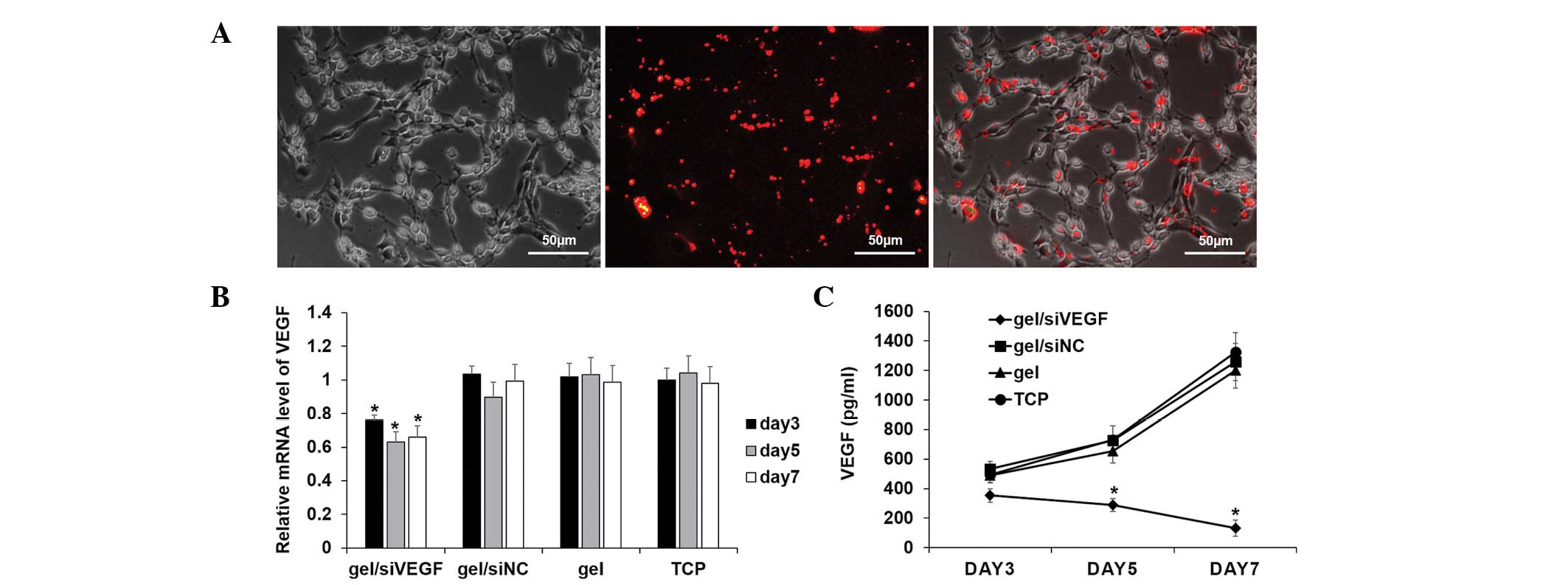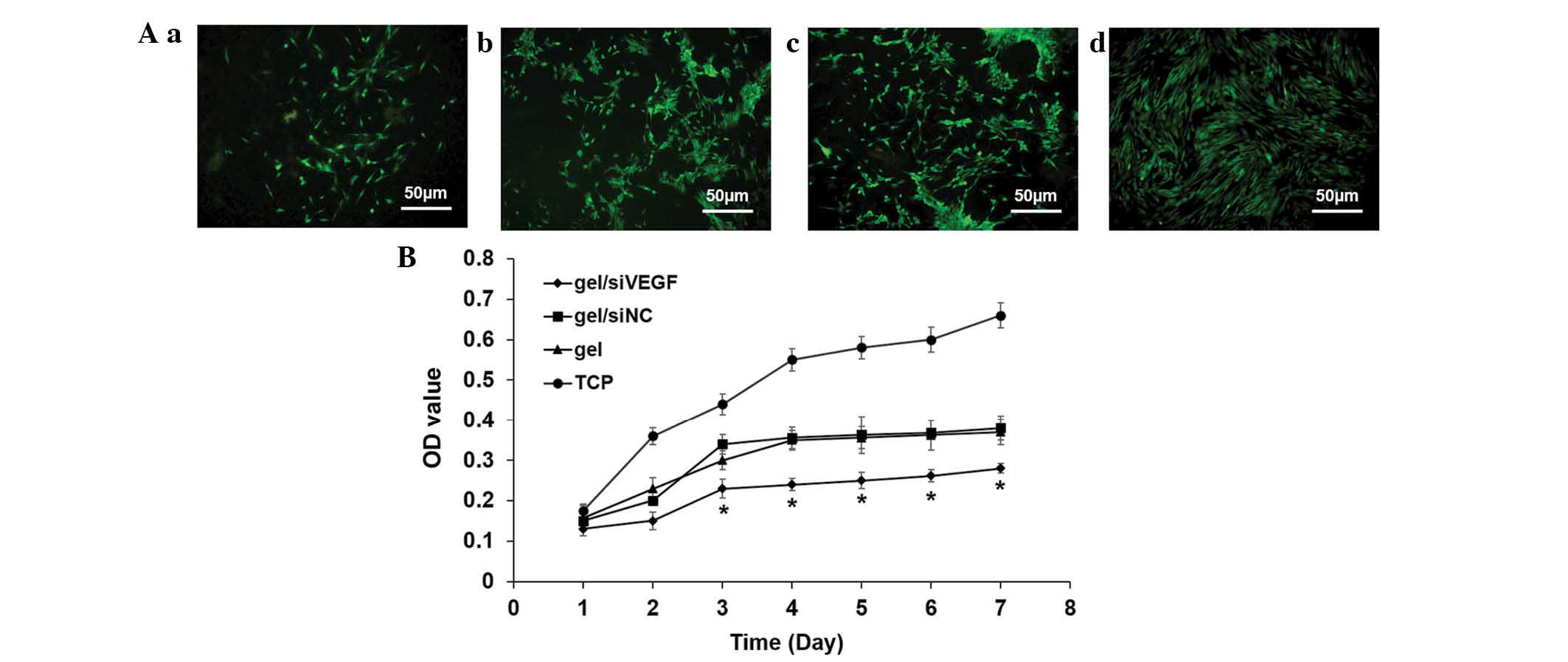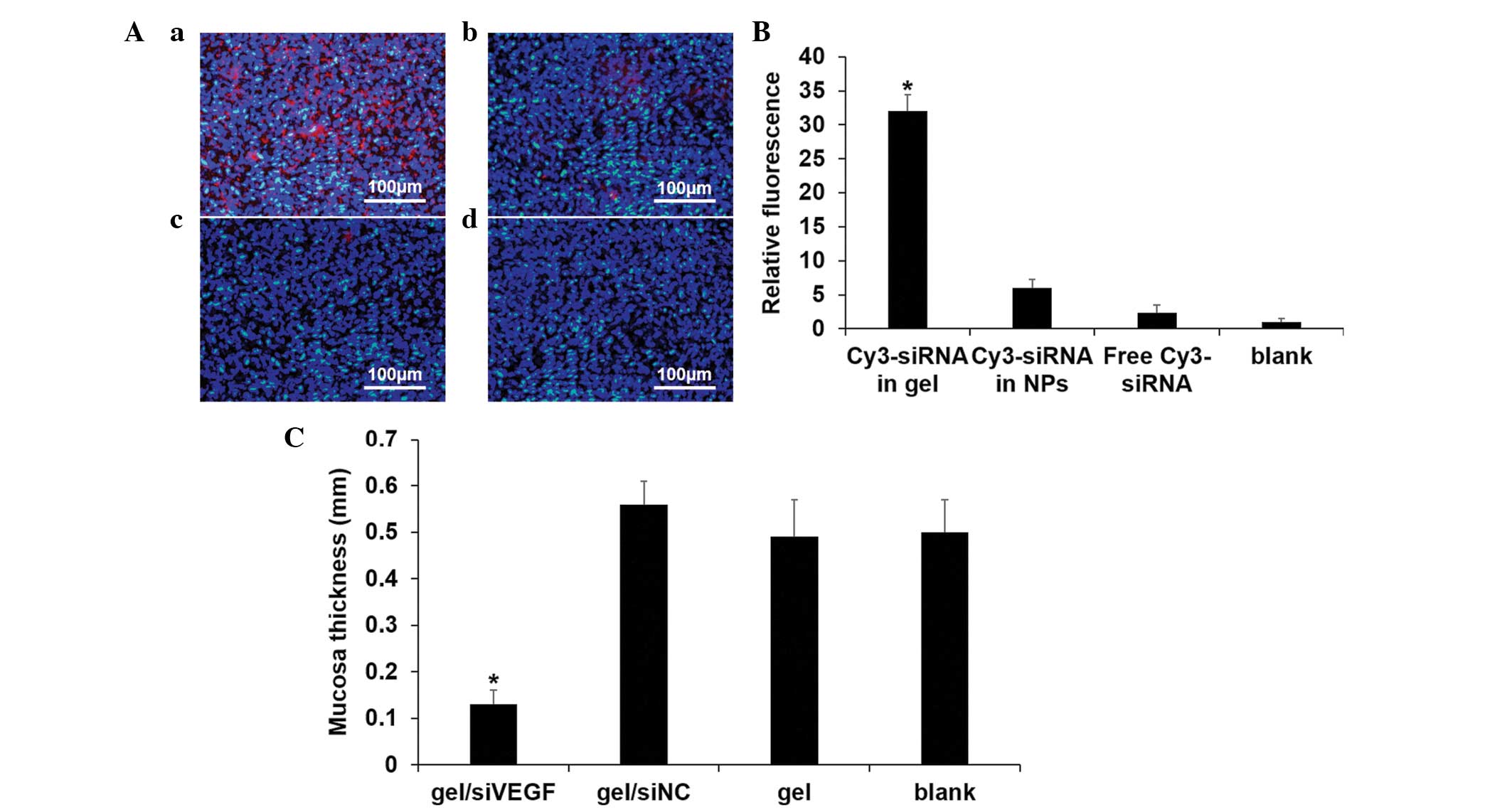|
1
|
Obaseki D, Potts J, Joos G, Baelum J,
Haahtela T, Ahlström M, Matricardi P, Kramer U, Gjomarkaj M,
Fokkens W, et al: The relation of airway obstruction to asthma,
chronic rhinosinusitis and age: Results from a population survey of
adults. Allergy. 69:1205–1214. 2014. View Article : Google Scholar : PubMed/NCBI
|
|
2
|
Van Zele T, Holtappels G, Gevaert P and
Bachert C: Differences in initial immunoprofiles between recurrent
and nonrecurrent chronic rhinosinusitis with nasal polyps. Am J
Rhinol Allergy. 28:192–198. 2014. View Article : Google Scholar : PubMed/NCBI
|
|
3
|
Saedi B, Sadeghi M, Akhavan-Khaleghi N and
Seifmanesh H: Impact of endoscopic sinus surgery on the quality of
life of patients with nasal polyposis. B-ENT. 10:59–65.
2014.PubMed/NCBI
|
|
4
|
Lee HS, Myers A and Kim J: Vascular
endothelial growth factor drives autocrine epithelial cell
proliferation and survival in chronic rhinosinusitis with nasal
polyposis. Am J Respir Crit Care Med. 180:1056–1067. 2009.
View Article : Google Scholar : PubMed/NCBI
|
|
5
|
Felipe AV, Oliveira J, Chang PY, Moraes
AA, da Silva TD, Tucci-Viegas VM and Forones NM: RNA interference:
A promising therapy for gastric cancer. Asian Pac J Cancer Prev.
15:5509–5515. 2014. View Article : Google Scholar : PubMed/NCBI
|
|
6
|
Sahin B, Fife J, Parmar MB, Valencia-Serna
J, Gul-Uludağ H, Jiang X, Weinfeld M, Lavasanifar A and Uludağ H:
siRNA therapy in cutaneous T-cell lymphoma cells using polymeric
carriers. Biomaterials. 35:9382–9394. 2014. View Article : Google Scholar : PubMed/NCBI
|
|
7
|
Gu X, Ding F and Williams DF: Neural
tissue engineering options for peripheral nerve regeneration.
Biomaterials. 35:6143–6156. 2014. View Article : Google Scholar : PubMed/NCBI
|
|
8
|
Fu GF, Pan JC, Lin N, Hu HY, Tang WM, Xu
JS, Wang XL, Xu XQ, Qiu T, Liu XY, et al: siRNA against KIR3DL1 as
a potential gene therapeutic agent in controlling HIV-1 infection.
Viral Immunol. 27:207–213. 2014. View Article : Google Scholar : PubMed/NCBI
|
|
9
|
Howard KA, Paludan SR, Behlke MA,
Besenbacher F, Deleuran B and Kjems J: Chitosan/siRNA
nanoparticle-mediated TNF-alpha knockdown in peritoneal macrophages
for anti-inflammatory treatment in a murine arthritis model. Mol
Ther. 17:162–168. 2009. View Article : Google Scholar
|
|
10
|
Rudzinski WE and Aminabhavi TM: Chitosan
as a carrier for targeted delivery of small interfering RNA. Int J
Pharm. 399:1–11. 2010. View Article : Google Scholar : PubMed/NCBI
|
|
11
|
Gonçalves IC, Henriques PC, Seabra CL and
Martins MC: The potential utility of chitosan micro/nanoparticles
in the treatment of gastric infection. Expert Rev Anti Infect Ther.
12:981–992. 2014. View Article : Google Scholar : PubMed/NCBI
|
|
12
|
Han HD, Mora EM, Roh JW, Nishimura M, Lee
SJ, Stone RL, Bar-Eli M, Lopez-Berestein G and Sood AK: Chitosan
hydrogel for localized gene silencing. Cancer Biol Ther.
11:839–845. 2011. View Article : Google Scholar : PubMed/NCBI
|
|
13
|
Ma Z, Yang C, Song W, Wang Q, Kjems J and
Gao S: Chitosan hydrogel as siRNA vector for prolonged gene
silencing. J Nanobiotechnology. 12:232014. View Article : Google Scholar : PubMed/NCBI
|
|
14
|
Andersen MØ, Le DQS, Chen M, Nygaard JV,
Moustapha K, Bünger C and Kjems J: Spatially controlled delivery of
siRNAs to stem cells in implants generated by multi-component
additive manufacturing. Adv Funct Mater. 23:5599–5607. 2013.
View Article : Google Scholar
|
|
15
|
Ahn SK, Jeon SY, Khalmuratov R, Kim DJ,
Kim JP, Park JJ and Hur DG: Rat model of staphylococcal enterotoxin
B-induced rhinosinusitis. Clin Exp Otorhinolaryngol. 1:24–28. 2008.
View Article : Google Scholar : PubMed/NCBI
|
|
16
|
Li SD, Chen YC, Hackett MJ and Huang L:
Tumor-targeted delivery of siRNA by self-assembled nanoparticles.
Mol Ther. 16:163–169. 2008. View Article : Google Scholar
|
|
17
|
Rimmer J, Fokkens W, Chong LY and Hopkins
C: Surgical versus medical interventions for chronic rhinosinusitis
with nasal polyps. Cochrane Database Syst Rev.
12:CD0069912014.PubMed/NCBI
|
|
18
|
Lee HS and Kim J: Constitutive expression
of vascular endothelial cell growth factor (VEGF) gene family
ligand and receptors on human upper and lower airway epithelial
cells. Int Forum Allergy Rhinol. 4:8–14. 2014. View Article : Google Scholar : PubMed/NCBI
|
|
19
|
Matsune S, Ohori J, Yoshifuku K and Kurono
Y: Effect of vascular endothelial growth factor on nasal vascular
permeability. Laryngoscope. 120:844–848. 2010. View Article : Google Scholar : PubMed/NCBI
|
|
20
|
Burdick JA: Injectable gels for
tissue/organ repair. Biomed Mater. 7:0202012012. View Article : Google Scholar : PubMed/NCBI
|
|
21
|
Punnia-Moorthy A: Evaluation of pH changes
in inflammation of the subcutaneous air pouch lining in the rat,
induced by carrageenan, dextran and staphylococcus aureus. J Oral
Pathol. 16:36–44. 1987. View Article : Google Scholar : PubMed/NCBI
|
|
22
|
Fernandes M, Gonçalves IC, Nardecchia S,
Amaral IF, Barbosa MA and Martins MC: Modulation of stability and
mucoadhesive properties of chitosan microspheres for therapeutic
gastric application. Int J Pharm. 454:116–124. 2013. View Article : Google Scholar : PubMed/NCBI
|
|
23
|
Kinis V, Ozbay M, Akdag M, Alabalık U, Gul
A, Yılmaz B, Ozkan H and Topcu I: Effects of caffeic acid phenethyl
ester on wound healing of nasal mucosa in the rat: An experimental
study. Am J Otolaryngol. 35:482–486. 2014. View Article : Google Scholar : PubMed/NCBI
|




















